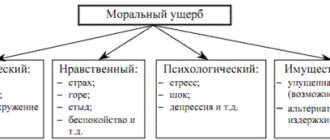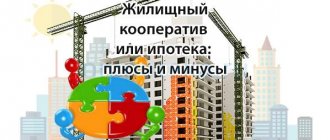What is serious harm to health
Decree of the Government of Russia dated August 17, 2007 No. 522 approves the Rules for determining the severity of harm to human health. According to Article 4 of the Resolution, damage to health will be considered grave under the following circumstances:
- harm dangerous to the life of the victim;
- complete dysfunction of any organ without the possibility of restoring functionality;
- complete loss of hearing, speech or vision;
- termination of pregnancy as a result of the actions of the offender;
- as a result of the harm, a mental disorder has arisen that requires the participation of a specialist (even if a full recovery is possible);
- due to the damage received, drug addiction or substance abuse has arisen;
- permanent facial disfigurement;
- persistent (i.e. long-term) loss of ability to work by more than 1/3;
- complete loss of professional ability to work, that is, a person cannot continue working in his specialty.
Additionally, these signs are indicated in Article 111 of the Criminal Code of Russia. And this is the complete list. If the results of the examination confirm mild or moderate harm to health, then the punishment under Article 118 will not be applied. Instead, other, related articles will be used (more on that below).
In detail: Which articles of the Criminal Code of the Russian Federation establish liability for causing grievous bodily harm?
Part 2 art. 118 of the Criminal Code of the Russian Federation
The same act, committed as a result of improper performance by a person of his professional duties, is punishable by restriction of freedom for a term of up to four years, or by forced labor for a term of up to one year, with or without deprivation of the right to hold certain positions or engage in certain activities for a term of up to three years, or imprisonment for a term of up to one year with or without deprivation of the right to hold certain positions or engage in certain activities for a term of up to three years.
Article 118 of the Criminal Code of Russia
Article 118 of the Criminal Code of the Russian Federation provides for punishment if the following signs are present:
- The harm caused is classified as grave.
- The actions were committed due to negligence.
- The cause-and-effect relationship between the consequences and the actions of the perpetrator has been confirmed.
It is possible to bring to criminal liability if the actions of the accused have all the signs of a crime, called its corpus delicti. These features include subject, object, objective side and subjective side. They are discussed below.
Who can be held accountable – the subject
For unintentional infliction of grievous bodily harm under Article 118 of the Criminal Code of the Russian Federation, punishment will be applied only to individuals who have reached the age of 16 years.
It is also necessary to confirm the sanity of the offender. For this purpose, a request is sent to the city clinic to a psychiatrist and narcologist. If a person is under preventive care with a mental disorder, alcohol or drug addiction, or there is a suspicion regarding the sanity of the guilty person, the investigator/interrogator additionally prescribes a psychiatric examination.
Part 2 of Article 118 separately provides for liability for persons performing professional activities (forklift driver, electrician, nurse, etc.). If, as a result of the performance of work functions, serious harm to health was caused to third participants, this part of the article applies.
What legal relations does the crime encroach on?
The violation encroaches on public relations in the sphere of protecting human life and health. This means that as a result of unintentional actions, harm is caused to a specific person (his health and life). For liability under Art. 118 of the Criminal Code of the Russian Federation - this is serious harm to health.
The attitude of the criminal to the violation is the subjective side
Liability will be assigned only for the careless infliction of grievous harm to the health of the victim. The law provides for two forms of negligence:
- Frivolity.
- Negligence.
frivolity
The guilty person foresaw or could have foreseen the infliction of serious harm to the health of the victim, but counted on their avoidance.
Example: In the midst of a personal conflict, citizen A began beating citizen B in the head area. The offender in such circumstances could and should have foreseen the consequences, but hoped that the harm would be light.
Negligence
The citizen does not want to cause serious harm to a person and did not foresee its occurrence. But in the current circumstances, with the necessary care, he should have foreseen that his actions would entail such consequences.
Example: At the beginning of spring, citizen K. decided to poison moles in his garden. For this purpose, he purchased poison, which he divided into portions on the kitchen table. As a result of carelessness, some of the poison granules spilled onto the table. Citizen K.’s sister laid fruit on the table and some of the poison got on the food. As a result, the woman suffered partial brain damage and, as a consequence, loss of professional ability to work.
What actions will be punished - the objective side
Careless infliction of serious harm to health may be accompanied not only by active influence on the part of the offender, but also by inaction at the moment when it was necessary to provide assistance or timely prevent further development of the disorder.
The following will be considered active actions:
- battery;
- pushing;
- causing harm using improvised objects;
- mechanical damage caused by exposure to fire, chemicals, extreme temperatures;
- poisoning.
As for inaction, the following situation can serve as an example: Citizen B., during a quarrel, pushed Citizen K., who fell and hit his head on the concrete floor. Citizen K. suffered a fractured skull and also lost consciousness. Citizen B. left the scene of the crime.
Later, the examination prepared a conclusion in which it was stated that as a result of large blood loss, irreversible consequences occurred for the brain, which led to the development of mental disorders. The consequences could have been avoided if citizen B. had immediately stopped the bleeding or called an ambulance.
Commentary to Art. 118 of the Criminal Code of the Russian Federation
Commentary edited by Esakova G.A.
1. The concept of grievous bodily harm is considered in the analysis of Art. 111 of the Criminal Code. The difference between these two crimes lies in the subjective side.
2. The subjective side of the crime is characterized by a careless form of guilt. As a rule, this is due to a gross violation of the rules of household precautions or failure to comply with the rules of precaution in the field of professional activity.
3. Improper performance by a person of his professional duties (Part 2 of Article 118 of the Criminal Code) means negligent, negligent, irresponsible or dishonest actions of a person who is obliged to properly perform his official functions and has a real opportunity to properly perform these functions.
Qualifying signs and punishment
Article 118 consists of two parts.
The first - the general rule provides for liability for causing grievous harm through negligence. Types of punishment that can be applied to a violator:
- A fine of up to 80 thousand rubles or penalties in an amount not exceeding the criminal’s six-month official income.
- No more than 480 hours of compulsory work.
- Up to 24 months of correctional labor.
- Up to six months of arrest.
- Restriction of freedom for a period of up to three years.
The second part of the article provides for a more severe punishment, taking into account the qualifying circumstances, that is, the special conditions for committing the crime. Bring to justice under Part 2 of Art. 118 of the Criminal Code of Russia can only be applied to a person who improperly performed his official duties. As a result, the victims received injuries assessed by a forensic expert as serious.
The Criminal Code provides for the following types of punishment:
- No more than 4 years of restriction of freedom.
- Up to 12 months of forced labor.
- Imprisonment, but not more than one year.
For the second part, additional punishment may also be applied. Along with forced labor and imprisonment, in this case a decision may be made to ban the implementation of a specific type of activity (for example, medical practice) for a period of up to 3 years.
Release from liability
A person may be released from liability for innocent causing of harm, as provided for in Art. 28 of the Criminal Code. Innocent causing is recognized in the following cases:
- the person did not foresee the possibility of consequences and, in the current circumstances, could not foresee them;
- the person foresaw the onset of illegal consequences, but could not stop and prevent them due to the discrepancy between the psychological or physical state of the extreme situation.
Court decisions
Accident with oncoming traffic: a drunk driver fled the scene of the accident
The driver is trying to avoid responsibility
The culprit fled the scene of the accident
Accident at a pedestrian crossing
The driver and the insurance company paid the hit pedestrian 700 thousand rubles
Hiding from the scene of an accident: how to prove the driver’s innocence?
Difference from related articles
After receiving a report of a crime (the victim, his legal representative or third parties who become aware of the commission of an offense can file a complaint), law enforcement officials determine on the basis of which article of the Criminal Code the punishment will be applied.
Art. 118 of the Criminal Code of the Russian Federation is a general rule. If there are special rules in the Criminal Code, other articles of the Criminal Code are applied, which we have collected below. The degree of responsibility of the violator depends on the chosen article.
Art. 109
If a person’s actions/inaction resulted in death, although there was no intent even to cause grievous harm, then liability will be assigned under this article – “causing death by negligence.”
Art. 111
According to this norm, punishment is imposed in the case of intentional infliction of serious harm to human health. In the case where the guilty person wanted to cause grievous harm, but unintentional death occurred, the punishment will be applied under the article “intentional infliction of grievous harm to health” (Part 4 of Article 111 of the Criminal Code of the Russian Federation).
Details: Article 111 of the Criminal Code of the Russian Federation
Art. 113
A state of affect is a state of temporary psychological instability caused by strong emotions (stress, fear, jealousy). If serious health consequences were caused under the influence of passion, then Article 113 will be applied. Passion is proven by ordering a psychiatric examination if there are factors indicating possible emotional distress of the guilty person.
Art. 114
Necessary defense, as well as the implementation of measures aimed at apprehending a criminal, free a person from responsibility. But if the necessary measures were exceeded, as a result of which serious consequences occurred in the form of grievous bodily harm, then punishment will have to be incurred.
Art. 216
For violation of safety rules during construction work, if the violation resulted in serious harm to health, punishment is imposed. Although this is considered serious harm to health due to negligence. Subject under Art. 216 of the Criminal Code of the Russian Federation - a special person, that is, a person involved in construction work and is obliged to comply with safety precautions.
Art. 219
Violation of fire safety requirements results in administrative liability, but if a cause-and-effect relationship between the violations and the resulting serious harm to human health is proven, then criminal liability cannot be avoided. Punishment applies to persons who ignore fire safety precautions.
Art. 264
Road traffic accidents are the most common mechanism for causing serious injuries. But if the harm is caused due to violation of the rules of operation of vehicles or traffic rules, then another article will be used - 264 of the Criminal Code of Russia. In this case, the violation of traffic rules was committed intentionally, and serious consequences were caused by negligence.
Customer Reviews
Review by Lobova E.I. Dear Lyubov Vladimirovna, I, Evgenia Ilyinichna Lobova, would like to express my deep gratitude to lawyer Yuri Vladimirovich Sukhovarov for the objective, complete, competent consultation on an issue that interests me. As theater begins with a hanger, I cannot help but note the exceptional politeness of the administrator Daria Vladimirovna Kutuzova.
I wish you great success! Lobova E.I.
Letter of thanks
Gratitude from gr. Voronova T.A. I express my gratitude to Yuri Vladimirovich for competent, highly professional advice on the issue of “Protection of Consumer Rights”, a clear explanation of my further actions in my situation, as well as gratitude to Olga Anatolyevna for her attentive and sensitive attitude towards visitors. I was glad to meet your agency!
Voronova Tatyana Anatolyevna
tel.
Review by B.I. Goreky Gratitude to Yuri Vladimirovich from B.I. Goreky for the consultation on family rights.
Gratitude from N.A. Uvarova I express my deep gratitude to lawyer Sergei Vyacheslavovich for his attitude towards me and my question. There are no words to describe the feelings of gratitude for the professionalism shown and the greatest human sympathy and understanding! All the best to you! Health, success in work and long life!
Thank you very much! Sincerely, Nadezhda Anatolyevna Uvarova, 07/25/2019
Review by Sokolov M.Yu. I express my gratitude to your company, as well as Denis Yurievich Stepanov and Daria Valentinovna Kutuzova for their conscientious attitude to their duties.
With sincere respect, Sokolov M.Yu.
Thanks from Radhuan M.R. Dear Kavaliauskas Vasily Anatolievich. Let me express my sincere gratitude for the qualified legal assistance provided. Thanks to your professionalism, I was able to achieve a decision in my favor. I wish you further prosperity and professionalism.
Radhuan M.R. 06/08/2018
Gratitude from Soboleva E.P. I would like to express my deep gratitude to Vasily Anatolyevich Kavaliauskas for his literacy, consultation and attention to the client who found herself in a difficult situation; as well as wonderful, sensitive administrators. I wish the company prosperity and good clients.
Sincerely, Soboleva Elena Petrovna. September 19, 2018
Thanks to Stepanov D.Yu. from Shcherbakova T.I. I would like to express my deep gratitude to Denis Yuryevich Stepanov for the very competent, highly qualified handling of my difficult case of terminating a contractual agreement with a problematic developer, who repeatedly postponed the completion of construction and completely ignored our claims (from other legal companies). The claim and complaints of Denis Yuryevich put everything in its place quickly enough, saving us from the threat of penalties from the developer, who unlawfully included them in the contract. Good luck to you in defending our legitimate interests! Thank you!
Sincerely, Shcherbakova T.I. 04.12.2017
Gratitude from Balitskaya A.S. I express my deep gratitude to Alexander Viktorovich Pavlyuchenko for his efficiency and professionalism in resolving controversial issues. The pre-trial settlement was completed as quickly as possible.
Balitskaya A.S., 05/15/2019
Arbitrage practice
On August 10, 2021, a magistrate judge in the city of Moscow considered a case involving the infliction of grievous harm by negligence.
During the dispute, citizen V. struck one blow to citizen B. in the eyebrow area (minor injuries, since only an abrasion remained). From the impact, citizen B. fell onto the asphalt, which resulted in an open craniocerebral injury, which was assessed by the expert as serious harm. The result is that citizen V. is found guilty and sentenced to 100 hours of compulsory labor.







